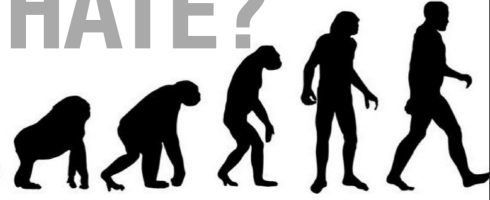What does IQ mean?
A=Pe^(rt) is the formula for compound interest. Suppose that intelligence compounds over time during the first 21 years of life, as the brain is developing. Intelligence quotient is supposed to represent the rate at which intelligence increases during that period. But what does that mean? Does that mean that IQ is a kind of APR in a compound interest formula? Lets take a look at what that would imply.
Suppose everyone starts out with 10 intelligence (an arbitrary number that doesn’t really matter).
If V has has a constant IQ of 40 (mentally disabled), then, A=Pe^(rt) would imply that the AMOUNT of intelligence after 21 years of growth and development would equal 10e^(0.4*21), or just 44,471. That’s 3/1,000,000ths of the intelligence of an average person.
If W has a constant IQ of 90 (a bit below average), then, A=Pe^(rt) would imply that the AMOUNT of intelligence after 21 years of growth and development would equal 10e^(0.9*21), or 1,614,974,644. That’s 36,315 times the intelligence of the mentally disabled person, but only 12.25% of the intelligence of an average person or 1.5% of the intelligence of a person with IQ 110.
If X has a constant IQ of 100 (presumably exactly average), then, A=Pe^(rt) would imply that the AMOUNT of intelligence after 21 years of growth and development would equal 10e^(1*21), or 13,188,157,345. That’s 12.25% of the intelligence of a person of IQ 110.
If Y has a constant IQ of 110 (a bit above average), then, A=Pe^(rt) would imply that the AMOUNT of intelligence after 21 years of growth and development would equal 10e^(1.1*21), or 107,696,733,712. That’s 8.17 times the intelligence of an average human.
If Z has a constant IQ of 160 (genius), then, A=Pe^(rt) would imply that the AMOUNT of intelligence after 21 years of growth and development would equal 10e^(1.6*21), or 3,911,061,021,110,377. That’s 296,559 times the intelligence of an average human or 87,946,325,046 times the intelligence of the mentally disabled individual.
And that is why rely on people like Einstein to solve the mysteries of the universe.
Of course, this isn’t the whole story.
1) The brain may not develop at the same rate throughout life. If it slows substantially in the late teens, then the differences in intelligence between people of different IQs should be less dramatic.
2) Over time, the brain may deteriorate at a rate that is related to its earlier rate of growth. If those with more intelligence lose it faster, then one would expect the population to converge somewhat at older ages, long after the brain finished developing.
3) The brain may not start and stop developing at 0 and 21. It likely begins developing while still in the womb, and it could be through with major development at a much earlier age. Or, it could continue developing at a reduced rate through adulthood. As far as I know, we simply don’t have sufficient data on when the brain develops and at what rates.
4) The brain might not develop at a compounding exponential rate. It could develop at a flat rate, or by some weird hybrid complicated function.
What happens to the numbers if we assume, instead, that the brain develops only from 0 to 18?
If V has has a constant IQ of 40 (mentally disabled), then, A=Pe^(rt) would imply that the AMOUNT of intelligence after 21 years of growth and development would equal 10e^(0.4*18), or just 13,394. That’s 2/100,000ths of the intelligence of an average person.
If W has a constant IQ of 90 (a bit below average), then, A=Pe^(rt) would imply that the AMOUNT of intelligence after 21 years of growth and development would equal 10e^(0.9*18), or 108,535,199. That’s 8103 times the intelligence of a mentally disabled person, but only 2.7/100ths of the intelligence of a person with IQ 110.
If X has a constant IQ of 100 (presumably exactly average), then, A=Pe^(rt) would imply that the AMOUNT of intelligence after 21 years of growth and development would equal 10e^(1*18), or 656,599,691. That’s 6 times the intelligence of a person with IQ of 90.
If Y has a constant IQ of 110 (a bit above average), then, A=Pe^(rt) would imply that the AMOUNT of intelligence after 21 years of growth and development would equal 10e^(1.1*18), or 3,972,196,658. That’s 6 times the intelligence of an average human.
If Z has a constant IQ of 160 (genius), then, A=Pe^(rt) would imply that the AMOUNT of intelligence after 21 years of growth and development would equal 10e^(1.6*18), or 32,187,042,897,020. That’s 49,020 times the intelligence of an average human, or 2.4 BILLION times the intelligence of someone who is mentally disabled.
Implications
IQ is believed to be driven by a mixture of environmental and genetic factors. Although the genetic underpinnings of intelligence are not well-known, a handful of alleles have already been identified in the human genome as being statistically correlated with as much as a single IQ point even after controlling for 1 million independent DNA regions in a sample of over 100,000 people. There may be something like 10,000 of these minor genetic variations, any random 100 or so would be responsible for about 15 IQ points. Some have postulated that artificial genetic modifications would someday allow us to create future generations of humans that have most or all of these alleles expressed optimally, generating theoretical normal IQs in the hundreds, or perhaps even over 1000.
How smart would a super-human be with an IQ of 1000?
Under the 18-year model discussed above: *only* 2-with-70-zeroes times smarter than a current average human.
Under the 21-year model discussed above: 1-with-82-zeroes times smarter than a current average human.
Think about the most powerful supercomputer in the world (as of November 2015), China’s Tianhe-2, which has about 1,408,000,000,000,000 bytes of memory, and compare it to a single byte of data (8 1s & zeroes, representing basically a single letter, number, or character). Take that amount of memory to about the fifth power, and that is how smart a 1000 IQ superhuman would be compared to us (a single byte).







